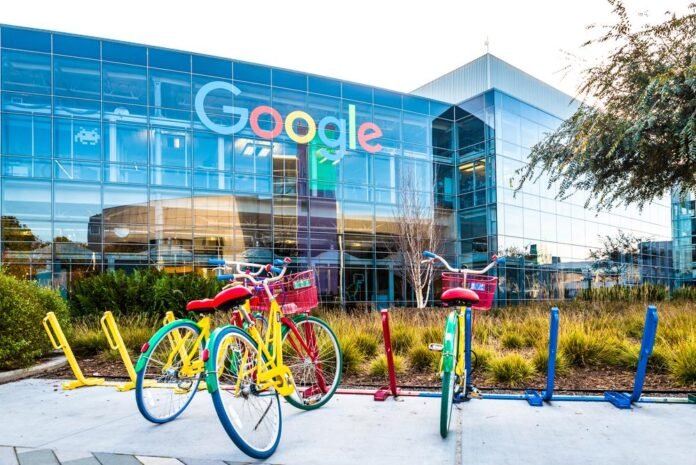There’s a lot of opportunity out there for Android developers. Millions of people worldwide rely on Android to power their smartphones, tablets, and other devices; the Google Play app storefront includes millions of apps. With all that in mind, what skills do Android developers need to succeed? Let’s break it down!
What is Android?
Google unveiled its Android mobile operating system in 2007. In contrast to Apple, which forbids other manufacturers from using its iOS operating system on their mobile devices, much of Android’s codebase is free and open-source, which means anyone can download, install, and modify it. While numerous manufacturers produce devices that run Android, these versions usually come with Google’s proprietary software and services, such as Google Play and Google Search (the manufacturers also pay Google a licensing fee).
Over the years, some manufacturers have “forked” Android software and created versions that feature none of Google’s proprietary code. Perhaps the most notable example is Amazon, which used Android as the base for its FireOS operating system.
What does all this mean for Android developers? For years, the Android ecosystem was incredibly fragmented, with different devices from different manufacturers running different versions of Android on wildly different update schedules (if the software was updated at all). Google has proposed various initiatives to reduce fragmentation (including “Project Treble”), but it can only do so much.
For some developers, fragmentation is a minor annoyance; for others, it’s liable to drive them off Android completely, as they want their apps supported by all devices in the ecosystem (and secure from external attack). If you’re building Android apps, you need to keep fragmentation in mind–will your app run on as many screens as possible? Is it backward-compatible with older versions of Android?
What Programming Languages Do Android Developers Need?
Java is the original (and most widely used) language for building apps in Android, so anyone who want to break into this ecosystem will need to master it. Fortunately, Google offers courses for building your Android apps in Java, in addition to the enormous number of tutorials and documentation out there about Java development.
The Java Developer Kit (JDK), hosted on Oracle’s website, includes lots of built-in support, documentation, and libraries. For those who are visual learners, Microsoft also has a website featuring a series of short videos dedicated to the fundamentals of Java (as you might expect, much of the content focuses on how to use Java in conjunction with Microsoft’s tools and platforms, most notably Azure.)
In the aftermath of Google’s lengthy, very expensive legal battle with Oracle over Android and Java code (here’s a nifty explainer of a very complex issue), Google began to promote Kotlin as a “first class language” for Android development.
To ramp developers onto Kotlin as fast as possible, Google has rolled out Android Basics in Kotlin, a course designed to give mobile-app developers the foundational knowledge necessary to build Android apps in Kotlin. That’s just one piece of a huge library of Kotlin-based training, which includes Kotlin Bootcamp for Programmers, Android Kotlin Fundamentals, and, for those with a bit more experience, Advanced Android in Kotlin.
What Other Skills Do You Need for Android Development?
Anyone who plans on developing Android apps must master the intricacies and procedures of the Android Developer Portal, which includes the Android Studio, the platform’s integrated development environment (IDE). As you build your app, you’ll need the Portal’s design tools, code editor, and emulator for testing applications.
Android app builders must also familiarize themselves with Google Play tools and APIs. In addition to learning the basics (such as monetizing apps and tracking engagement), you’ll need to ensure your app follows Google’s pretty strict privacy and data controls.
Whether you’re a lone developer building apps by yourself, or just one player on a large mobile-app development team, you’ll want to learn about Material Design, Google’s design guidelines for its Android ecosystem. Even if you don’t think of yourself as a UI/UX designer, familiarity with Material Design will help you create great-looking products that achieve thematic consistency with the rest of the Android ecosystem–and make you more competitive. (And if you’re not a designer, don’t worry; Google offers lots of design-related documentation).
Summing It Up
So that was a lot of information! To summarize, if you’re interested in learning essential Android developer skills, consider the following:
Java
Kotlin
Android Developer Portal/SDK
Google Play Tools and APIs
Material Design
Android Studio
Wireframing
Principles of Mobile App Design/Development
Wireframing is particularly important if you’re building Android apps from scratch, and/or want to show potential employers and clients that you’re capable of ideating an app’s look and functionality from start to finish.
How Much Do Android Developer Jobs Pay?
According to Indeed, the average Android developer salary at $125,372 per year, and that can likely rise with experience and specialized skills. When you apply to jobs, review the job posting and note the required skills (such as Kotlin and Java); make sure that you insert all the ones you know into your resume and application materials, as that will get you past the automated application screeners that sort out applicants based on keywords.
Another great way to highlight your Android skills for potential employers is to create a portfolio of your previous work, including sample apps and links to a GitHub repo featuring your code. If you can show your passion for Android, you’ll boost your chances of landing the gig.
Post Disclaimer
The information provided in our posts or blogs are for educational and informative purposes only. We do not guarantee the accuracy, completeness or suitability of the information. We do not provide financial or investment advice. Readers should always seek professional advice before making any financial or investment decisions based on the information provided in our content. We will not be held responsible for any losses, damages or consequences that may arise from relying on the information provided in our content.



